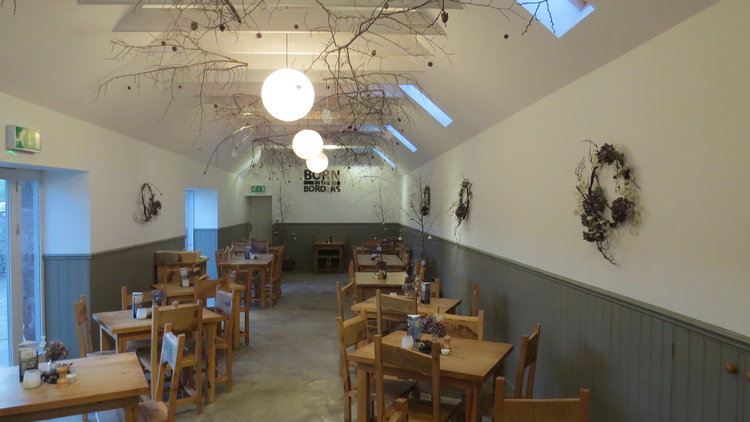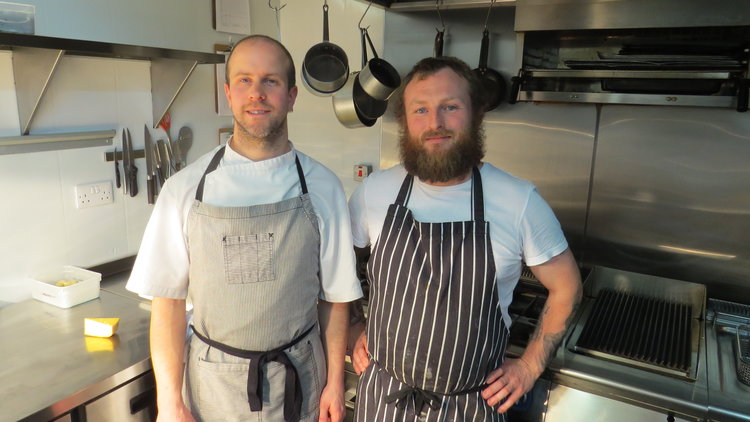
A visitor centre near Jedburgh, Born in the Borders is a brewery, cafe, restaurant and farm shop that act as a showcase for the fantastic natural produce which is grown, reared, shot and harvested in the local area.
Stocking goods from over a hundred producers, the shop sells everything from Cuddybridge apple juices to Selkirk bannocks and exquisite chocolates from In House at Castle Douglas. Just across the courtyard, the award-winning microbrewery follows a plough to pint ethos and uses barley from the nearby Chesterton Estate to make a range of beers which are sold from Newcastle to Edinburgh. Visitors are welcome to do their own self guided tour of the brewery.
Pride in the local larder
The same pride in the local larder is to the fore in the cafe restaurant where Chef David Malcolm, originally from Melbourne, works his magic with Sous Chef Robert Hume. Lunch might be a sandwich filled with rare roast beef from the Borders along with a bowl of golden courgette and Peelham chorizo soup or a perhaps a burger made with local spring lamb and foraged wild garlic.
Now in its second year, Born in the Borders has started offering evening meals on Thursdays, Fridays and Saturdays. The 5pm Dining blog jumped on the new Borders train from Edinburgh and dropped in for dinner and a chat.
Dinner was a showstopper. An appetising mix of contrasting textures and colours, the beautifully presented food offered a real taste of the Borders. From rich venison loin and crispy kale floret to a creamy, buttery swede purée and tangy Chevington cheese, it was an earthy, autumnal meal.
5pm: What are you aiming to do with the food at Born in the Borders?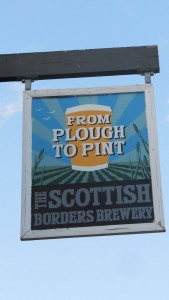
David Malcolm: The owner, John Henderson, had a really good vision for what he wanted to do and I like his plough to pint ethos. The idea here is to do something unique to the area and build on the really great food which is produced around here.
During the day, we try to offer something which is a little different for the area but is still really approachable. You might want a soup and a sandwich or something more adventurous.
At night, it’s about showing off the very best produce from the local area. We did quite a lot of research into what was available locally. We did a bit of foraging; went out to other restaurants and tried get a proper feel for the area. Me and Robert (Hume, Sous Chef) have Michelin experience and want to give that level of presentation. We want the food to look the best that it can. We try to put as much effort into it as we can. At the same time, we don’t want to scare people. We keep it approachable.
5pm: Are there particular ingredients from the Borders which stand out for you?
DM: There are some really good products to work with around here. In the summer, we get really great berries and then there is the game from autumn onwards. The local lamb is very good and some of the butchers do excellent dry aged beef. When it comes to something like a potato, it is a very simple thing but we are lucky to have Carroll’s Heritage Potatoes practically on our doorstep.
I remember using them in London before I knew where they were from. Their products are unique and grown with a lot of love and tenderness. They have brought back a lot of old varieties that aren’t really used any more. It’s great to be able to cook with that sort of produce on a daily basis.
It begins to get a little hard at this time of year. You begin to lose some of the fruits and vegetables but you always get really good meat and we get decent fish from the coast.
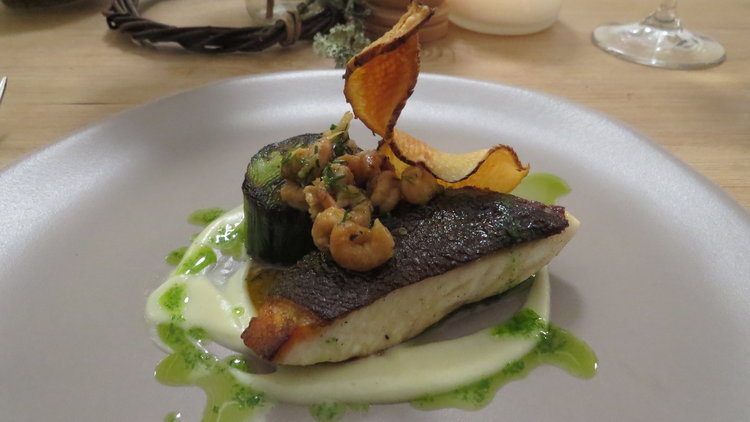
5pm: Is there a favourite time of year for you in the kitchen?
DM: I like the spring. You get through the winter and then there’s an abundance of things sprouting and shooting up. You get a whole new palate to work with. I also like late summer going into autumn as the game season kicks off and the mushrooms start coming in.
5pm: How did you start cooking?
DM: I always had a love of cooking. When I was growing up I used to help with Christmas dinner and so on and it grew from there. It was a natural progression. My involvement in cooking has always been based on the joy of seeing someone eat food that I have prepared. There is possibly also an element of attention-seeking in there as well. When I started working professionally in Melbourne, it was all Pacific Rim fusion food.
5pm: What brought you to this side of the world?
DM: I saw an advert for a hotel in Pitlochry in a Melbourne newspaper. Two weeks later, I was here. My Dad is Scottish so I was always curious. We try and go back whenever we can and usually end up eating out every night. The standard is pretty high across the board in Melbourne. You can go just about anywhere and be confident that your meal will be good quality.
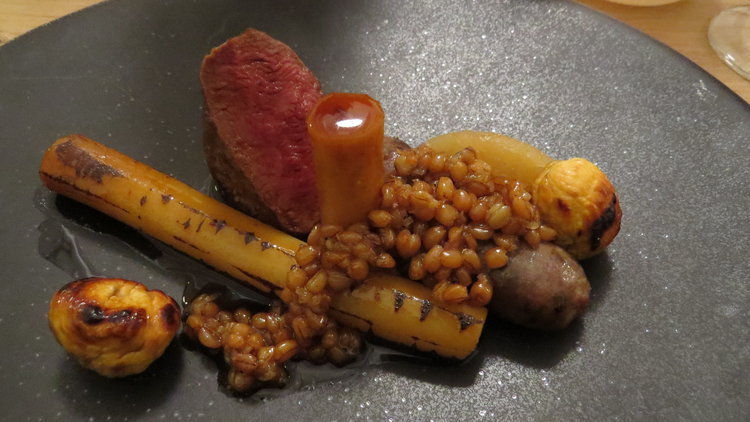
5pm: In many ways, cooking is cooking but are their differences between Australian kitchens and those you have worked in here?
DM: There are some differences. There are obvious differences in the produce. You don’t come into contact with much game in Australia, for example. The climate plays a bit of a part. Obviously, it is a lot hotter in the summer so the cooking is perhaps lighter and uses more raw ingredients. Overall, it’s mostly the same techniques and so on.
5pm: You have worked in some starry London restaurants. Can you tell us about them?
DM: I was in a number of places. Perhaps the most memorable was when I was at The Greenhouse when Bjorn van der Horst was Chef there. I did my year but felt that I was really struggling with the hours. It was typical Michelin restaurant shifts, starting at 6am, 7am, 8am if you were lucky and finishing at 11pm, midnight or later depending on how busy it was. It was a great time. The restaurant was firing on all cylinders. We were on the cusp of two Michelins stars and I learned a huge amount and came into contact with a lot of produce that I had never seen before.
What’s the best thing about being a chef?
DM: You want people to leave thinking ‘That was a really worthwhile experience’. If people are coming out and spending their hard-earned cash then we want to ensure that they are enjoying their meal.
5pm: What is the most memorable meal you have eaten?
DM: It would probably be at El Celler de Can Roca in Girona. I was lucky enough to eat there a couple of years ago. It was a fantastic meal. There were upwards of twenty courses. We were at the table a long time. It was a once in a lifetime experience that you never forget.
5pm: What was your worst day in the kitchen?
DM: Very early on in my apprenticeship, I remember changing the oil in a fryer. I’d cleaned it all out and then poured in about fifteen litres of fresh oil. Unfortunately, I had forgotten to close a valve and it all went over the floor. That was about a quarter to twelve on a busy Friday lunchtime. That was one of those ‘maybe this isn’t for me’ moments. There was a lot of redeeming myself for the next week or so.
